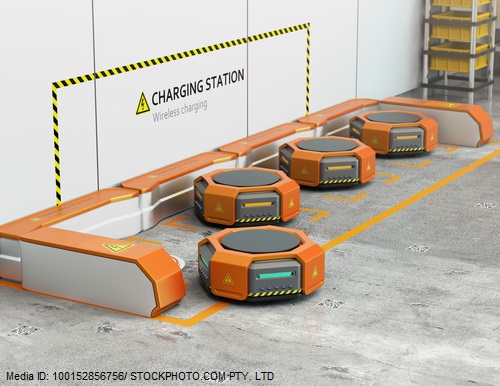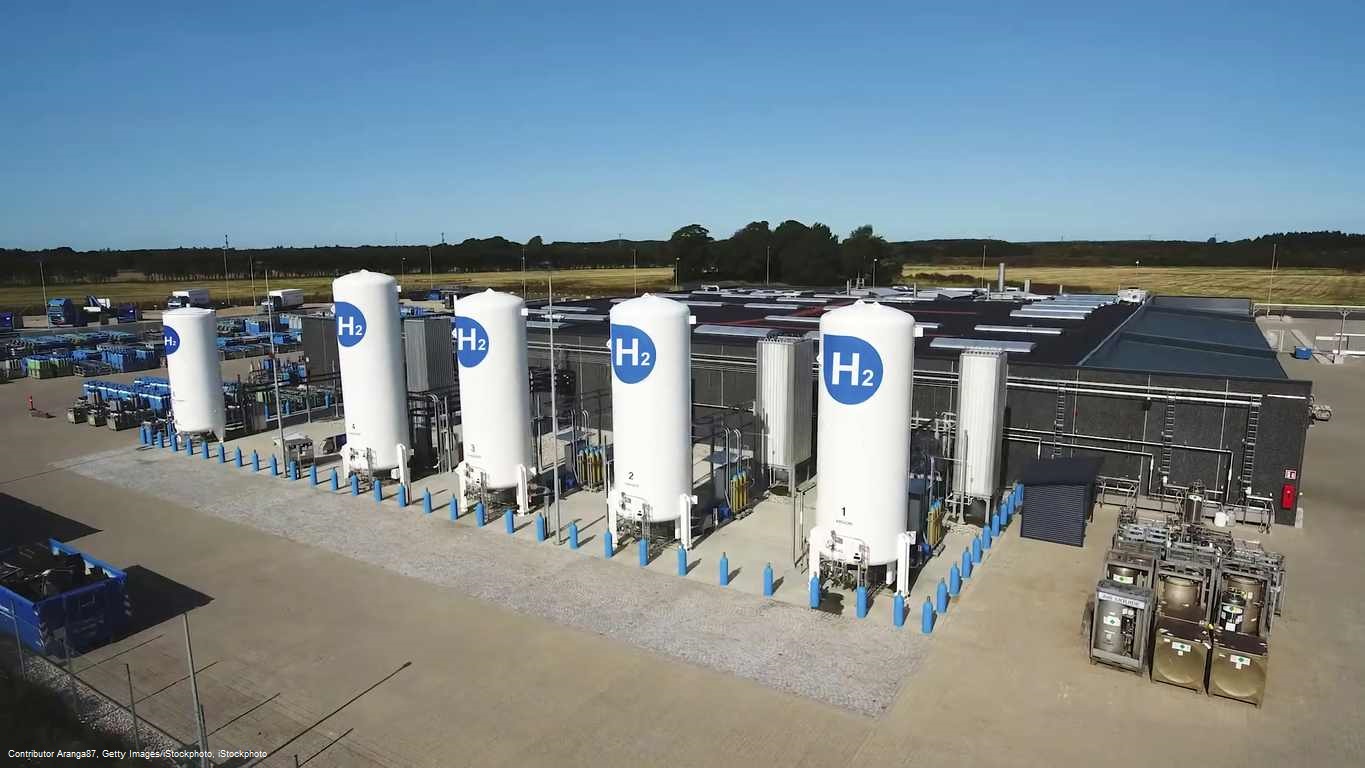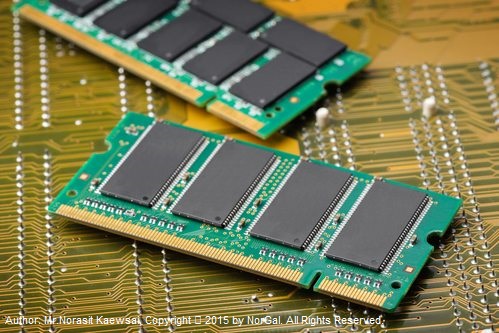LG Electronics accelerates expansion of its logistics robotics division
South Korea’s LG Electronics, the world’s leading home appliance maker, is accelerating the expansion of its robotics applications in the so-called “smart logistics” sector with the CLOi Carry Bot autonomous robot. The tech giant announced in mid-October that it entered into a memorandum of understanding with local AI logistics specialist Fassto Corp. for the development and manufacturing of logistics robots. LG’s vice president Jang Ik-hwan said the collaboration aims to provide various robot services for the next generation in the logistics robot market. Logistics robots generally fall under the KCs certification, which they are required to have in order to be imported and operated in Korea.

To this end, LG and Fassto will work on linking autonomous robots and logistics systems in the future. In addition, the processes in the respective logistics centers are to be optimized and the use of robots expanded. LG will contribute the corresponding robots to Fassto’s logistics centers and overseas distribution centers. LG’s self-driving CLOi Carry Bot can pick up loads, plan its own routes and take the payload to the desired location within the warehouse. LG said the robot can assist human workers with risky, simple or often repetitive tasks. In addition to the project with Fassto, LG plans to attract other customers for the CLOi Carry Bot. To that end, back in June, LG entered into an agreement with South Korea’s leading logistics company, CJ Logistics Corp. to jointly develop robots for sorting parcels. LG plans to deliver the CLOi Carry Bot to CJ Logistics and deploy it at its central distribution center.
KCs certification was introduced in South Korea to ensure basic safety in the design and manufacture of hazardous machinery and protective equipment in hazardous workplaces in Korea. The goal is to protect the health and safety of workers by preventing accidents. We provide certification services for all product areas, including KC certification for consumer products and especially electronics, KC-EMV certification for electronic products, and KCs certification for machinery, as well as KCs for explosion-proof products.
We are available to answer any questions you may have about Korea certifications.
Tel. Europe: +49-69-271 37 69 261 Tel. US: +1 773 654-2673
Email: info@korea-certification.com
For more information you can download our free brochure “Korea Certification Made Easy – The Booklet“.
New hydrogen extractor delivered by Hyundai Rotem
Hyundai Rotem has supplied a hydrogen extractor to a fusion charging station that produces and pumps hydrogen, using biogases from food. The station can produce over half a ton of high purity hydrogen per day. Plants and equipment that use gases such as hydrogen require KGS certification in many cases.

Chungju City is home to Korea’s first main station for charging vehicles and delivering hydrogen to the nearest charging stations. Chungju is also where the extractor is deployed, at a special zone station for demonstration purposes. Hyundai Rotem reported that air-tightness tests were undertaken on all seals of pipe connections associated with hydrogen production, as well as an internal pressure test to ensure the pressure resistance of the equipment. The government announced a goal of building 1,200 hydrogen charging stations by 2040. In this context, Hyundai Rotem plans to contribute to the hydrogen infrastructure with mobile hydrogen charging stations, among others.
Feel free to contact us any time if you need assistance or have any questions regarding Korean certifications like KC, KC EMC, KCs, KCs for explosion safety products or KGS factory registration.
Tel. Europe: +49-69-271 37 69 261 Tel. US: +1 773 654-2673
Email: info@korea-certification.com
Urgent questions?Please do not hesitate to contact us via chat. You will find the chat window at the bottom right of each page (if this is not visible, please check your browser settings).
For more information you can download our free brochure “Korea Certification Made Easy – The Booklet“.
MPR at the Expert Forum Future Battery 2022 on November 3rd and 4th in Berlin
For the third year in a row, experts in battery solutions from industry and academia came together at Future Battery to talk about the latest issues that are upcoming in battery applications and to participate in various workshops. This year the topic was “Next level: Establishing the battery society”, highlighting five strategic future topics on the role of battery technology for industry and society. Aspects of material and component supply, production scaling, regulatory requirements and sustainability issues such as recyclability or raw material optimization were the focus. This year, the Future Battery conference was held as a hybrid event at the EstrelConferenceCenter (ECC) Berlin and online with a supporting app. With 80 exhibition booths, visitors could explore the new ideas and technologies of the participating companies on site and obtain valuable information about products and developments. A very agile event format that brought together about 500 participants directly and another 2,500 participants online. This brought together automotive OEMs, manufacturers of battery systems and cells, and their suppliers, so that the complete value-added spectrum of battery technology could be included.
It was a lively and exciting exchange with a view far into the future to technological leaps that are already emerging today. For MPR International there were many insights to current and future opportunities. The massive increase in demand for batteries themselves in the field of e-mobility, as well as the demand for battery testing and approval oand/or registration in countries around the world has increased enormously. For MPR International this means that we have significantly increased our testing capacities therough our partner network. We have been receiving requests for testing from manufacturers who can no longer keep up with their test capacities. We are now able to offer extensive testing in Germany, other EU countries, the UK and the USA for battery testing at short notice and to carry out any necessary certifications. Of particular note here for Korea is KCs certification for electronic products, which are mandatory for many components and equipment involved in battery manufacturing.
Feel free to contact us any time if you need assistance or have any questions regarding Korean certifications like KC, KC EMC, KCs, KCs for explosion safety products or KGS factory registration.
Tel. Europe: +49-69-271 37 69 261
Tel. US: +1 773 654-2673
Email: info@korea-certification.com
For more information you can download our free brochure “Korea Certification Made Easy – The Booklet“.
This year, the Future Battery conference was held as a hybrid event at the EstrelConferenceCenter (ECC) Berlin and online with a supporting app. With 80 exhibition booths, visitors could explore the new ideas and technologies of the participating companies on site and obtain valuable information about products and developments. A very agile event format that brought together about 500 participants directly and another 2,500 participants online. This brought together automotive OEMs, manufacturers of battery systems and cells, and their suppliers, so that the complete value-added spectrum of battery technology could be included.
It was a lively and exciting exchange with a view far into the future to technological leaps that are already emerging today. For MPR International there were many insights to current and future opportunities. The massive increase in demand for batteries themselves in the field of e-mobility, as well as the demand for battery testing and approval oand/or registration in countries around the world has increased enormously. For MPR International this means that we have significantly increased our testing capacities therough our partner network. We have been receiving requests for testing from manufacturers who can no longer keep up with their test capacities. We are now able to offer extensive testing in Germany, other EU countries, the UK and the USA for battery testing at short notice and to carry out any necessary certifications. Of particular note here for Korea is KCs certification for electronic products, which are mandatory for many components and equipment involved in battery manufacturing.
Feel free to contact us any time if you need assistance or have any questions regarding Korean certifications like KC, KC EMC, KCs, KCs for explosion safety products or KGS factory registration.
Tel. Europe: +49-69-271 37 69 261
Tel. US: +1 773 654-2673
Email: info@korea-certification.com
For more information you can download our free brochure “Korea Certification Made Easy – The Booklet“.
Bottlenecks in South Korea show importance of foreign machine component imports
South Korean display machinery manufacturers are suffering from disruptions in the global supply chain, reports The Korea Economic Daily in its online site KED Global. The result of bottlenecks in certain components is delayed deliveries of machines and resulting interruptions in the expansion of production facilities at local panel manufacturers such as global market leader LG Display Co. According to the industry association “Korea Display Industry Association (KDIA),” domestic screen machine manufacturers would not have been able to meet delivery deadlines because important components from other countries were not available. In many cases, technical products must have KC certification in order to be exported to Korea. Already known is an extension of the delivery time for OLED screens from three months to now more than six months after order, according to various industry insiders. A South Korean machine manufacturer had to postpone a promised delivery to its customer in June until the end of this year. As a result, the planned expansion of production and replacement of machines at the screen manufacturer was also delayed. Well-known machine manufacturers such as Wonik IPS Co., Jusung Engineering Co. and Sunic System Ltd. failed to procure certain individual parts domestically that are otherwise supplied from overseas. Some manufacturers even had to buy used parts from China for more than double the price.
Currently, only 9 percent of all parts needed to make display machines come from South Korea, according to KDIA. Components from the U.S., Japan and Europe account for 37%, 29% and 19%, respectively. For industrial PCs and controls, South Korea relied entirely on suppliers from Taiwan. According to KDIA, such reliance on foreign suppliers makes the domestic industry very vulnerable to disruptions in the global supply chain. The most common components that have to be sourced from abroad are turbopumps, gas and air filters, and o-rings. To avoid such bottlenecks in the future, KDIA plans to work more closely with certain suppliers.
Certifications for the Korean market are a complex hurdle and difficult to navigate due to different authorities and certification systems. With over 15 years of experience in the certification business, MPR International GmbH is your best resource for competent service when it comes to exporting to Korea. For example, KC Safety is relevant for electronics and household products mostly intended for consumers, as well as products for children and babies.
Feel free to contact us any time if you need assistance or have any questions regarding Korean certifications like KC, KC EMC, KCs, KCs for explosion safety products or KGS factory registration.
Tel. Europe: +49-69-271 37 69 261
Tel. US: +1 773 654-2673
Email: info@korea-certification.com
Urgent questions?
Please do not hesitate to contact us via chat. You will find the chat window at the bottom right of each page (if this is not visible, please check your browser settings).
For more information you can download our free brochure “Korea Certification Made Easy – The Booklet“.
Already known is an extension of the delivery time for OLED screens from three months to now more than six months after order, according to various industry insiders. A South Korean machine manufacturer had to postpone a promised delivery to its customer in June until the end of this year. As a result, the planned expansion of production and replacement of machines at the screen manufacturer was also delayed. Well-known machine manufacturers such as Wonik IPS Co., Jusung Engineering Co. and Sunic System Ltd. failed to procure certain individual parts domestically that are otherwise supplied from overseas. Some manufacturers even had to buy used parts from China for more than double the price.
Currently, only 9 percent of all parts needed to make display machines come from South Korea, according to KDIA. Components from the U.S., Japan and Europe account for 37%, 29% and 19%, respectively. For industrial PCs and controls, South Korea relied entirely on suppliers from Taiwan. According to KDIA, such reliance on foreign suppliers makes the domestic industry very vulnerable to disruptions in the global supply chain. The most common components that have to be sourced from abroad are turbopumps, gas and air filters, and o-rings. To avoid such bottlenecks in the future, KDIA plans to work more closely with certain suppliers.
Certifications for the Korean market are a complex hurdle and difficult to navigate due to different authorities and certification systems. With over 15 years of experience in the certification business, MPR International GmbH is your best resource for competent service when it comes to exporting to Korea. For example, KC Safety is relevant for electronics and household products mostly intended for consumers, as well as products for children and babies.
Feel free to contact us any time if you need assistance or have any questions regarding Korean certifications like KC, KC EMC, KCs, KCs for explosion safety products or KGS factory registration.
Tel. Europe: +49-69-271 37 69 261
Tel. US: +1 773 654-2673
Email: info@korea-certification.com
Urgent questions?
Please do not hesitate to contact us via chat. You will find the chat window at the bottom right of each page (if this is not visible, please check your browser settings).
For more information you can download our free brochure “Korea Certification Made Easy – The Booklet“.



